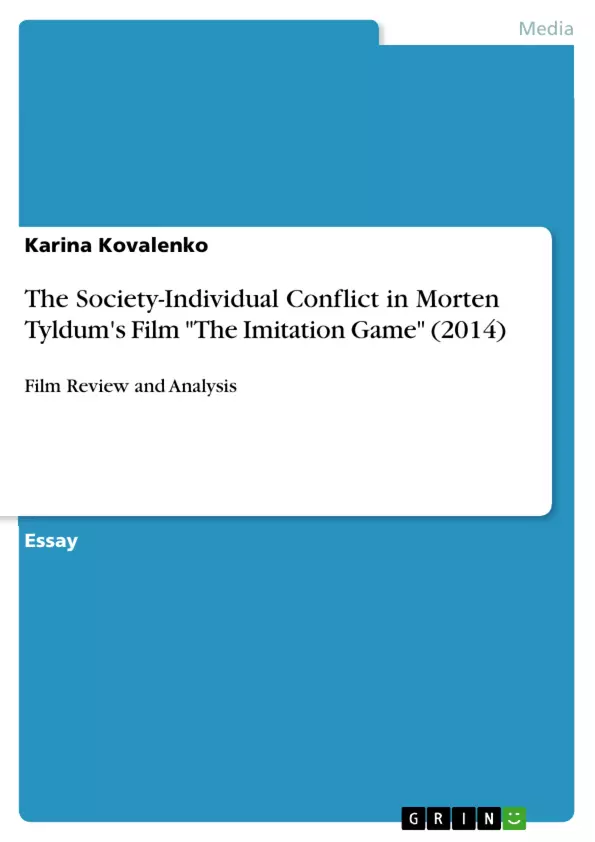"The Imitation Game" (2014) is a historical drama movie directed by Morten Tyldum based on the book "Alan Turing: The Enigma" by Andrew Hodges. The film is about life of a famous British mathematician and cryptanalyst Alan Turing, who is famous by the deciphering of the German Enigma coding machine during the World War II.
On the one hand, the movie tells a story of a person with a brilliant mind who changed the course of the world history, but on the other hand, this film is a personal drama that depicts complicated relationships between Alan and other people. Alan has lack of communication skills and his perception of the reality differs from others’ ones. Being misunderstood and rejected by people because of the peculiarity during his college years, Turing closes himself from the world, except one friend. At the beginning of the World War II he joins the secret cryptographists’ team, creates a computer-prototype machine and solves the Enigma mystery. The film brightly shows main character’s communication difficulties and his inability to collaborate in a team. After years, being caught by a policeman, executed and suffered from the punishment, the only one person who could understand him, Joan Clarke, visits him and witnesses his mental and health problems – the results of the execution.
I found it very interesting to analyze the development of the relationships between Turing and other people in the movie, how he confronts and deals with life and communication difficulties, and also Turing’s personality. The film’s thread of society’s suppressing on Alan and, eventually, death from it, also shows an inability of the society to accept extraordinary individuals. That is why I chose three themes to analyze and provide examples from the film – perception, identity and relationship maintenance. The purpose of my paper is to show that Alan Turing tries to understand the society, but the society does not want to understand and to admit him.
Table of Contents
- The Society-Individual Conflict in the Movie The Imitation Game (by Morten Tyldum, 2014)
- Identity
- Perception
- Relationship Maintenance
Objectives and Key Themes
This paper aims to analyze the society-individual conflict in the movie The Imitation Game, focusing on the character of Alan Turing and his interactions with the world around him. The film explores themes of identity, perception, and relationship maintenance, highlighting the challenges faced by individuals who do not conform to societal norms.
- The impact of societal rejection on identity formation
- The complexities of perception and how it affects communication
- The importance of relationship maintenance in overcoming societal barriers
- The challenges of navigating social expectations as an extraordinary individual
- The societal consequences of suppressing individuality
Chapter Summaries
The paper begins by introducing the film The Imitation Game and its central character, Alan Turing. It then explores the concept of identity and how Turing's experiences of rejection during his childhood and college years shaped his self-perception. The paper then delves into the theme of perception, analyzing Turing's unique way of interpreting information and the challenges this posed in his interactions with others. Finally, the paper examines the theme of relationship maintenance, focusing on Turing's efforts to build connections with others, particularly with Joan Clarke, who played a pivotal role in his life.
Keywords
The key themes and concepts explored in this paper include society-individual conflict, identity, perception, relationship maintenance, communication, social expectations, and extraordinary individuals. The paper draws upon research findings on the impact of societal rejection on identity formation, the complexities of perception, and the importance of relationship maintenance in overcoming societal barriers.
- Quote paper
- Karina Kovalenko (Author), 2016, The Society-Individual Conflict in Morten Tyldum's Film "The Imitation Game" (2014), Munich, GRIN Verlag, https://www.grin.com/document/333742



